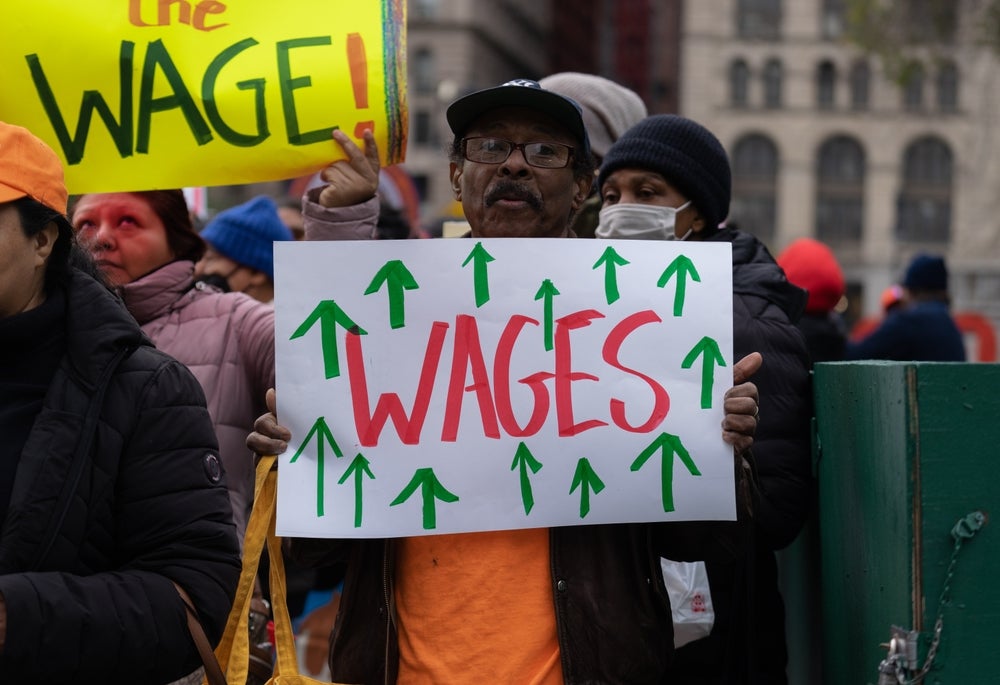
Non-profits Ethical Trading Initiative, amfori, Fair Labor Association (FLA), Fair Wear, and Mondiaal FNV explain in their letter to Bangladesh’s minimum wage board chairman, Liaquet Ali Molla, they have supported local union demands for a higher minimum wage.
The wage data from FLA member companies, as reported in its Fair Compensation Dashboard suggests that average monthly net wages for garment workers in Bangladesh increased less than 1% from 2019 to 2022.
FLA states the Bangladesh Bureau of Statistics shows inflation in Bangladesh rose to 9.02% in 2022-23 – the highest average inflation rate in 12 years.
The five organisations stress the importance of trade union consultation in setting the minimum wage, as well as overall respect for freedom of association and collective bargaining.
The organisations point out they actively support creating an environment that is conducive to human rights, responsible business practices, and sustainable trade relations between their 600+ member companies sourcing from more than 2,900 Bangladeshi producers within their respective networks.
Equally they note the importance of responsible purchasing practices by member brands to ensure there is appropriate cost-burden sharing with suppliers.
ETI says its organisation and its partners will continue to advocate for a political, legal and social landscape where its members can advance equitable trade, human rights and better business.
ETI adds: “We firmly believe that every worker should earn a living wage. We must strive towards its implementation in our members’ global supply chains to enable all workers and their families to break out of poverty and live a decent life.”
The ETI explains its tools enable companies across the globe to operate successful and responsible businesses, by helping them improve the Environmental, Social and Governance (ESG) performance of their value chains through robust due diligence.
The AAFA described Bangladesh’s minimum wage review as a “crucial opportunity to address existing disparities and to establish fair remuneration for garment workers.”
It also called on the wage board committee to actively engage “true worker representatives, labour unions, and all relevant stakeholders” to ensure an atmosphere of open dialogue and inclusivity.
The AAFA said it hopes the final increased minimum wage agreed will reflect the “severe economic challenges that garment workers have faced over the pandemic, the subsequent supply chain crisis, and the current state of the Bangladesh economy”.
The Bangladesh Garment Manufacturers and Exporters Association (BGMEA) had not responded to Just Style’s request for comment at the time of going to press.



